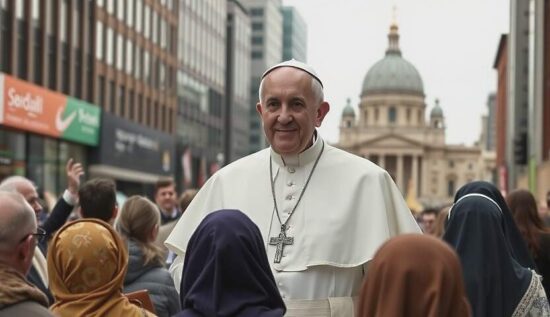Pope Francis has been on the papal throne for 12 years, since his election on March 13, 2013, as the successor of Pope Benedict XVI. He is the first pope from the Americas, taking the name Francis upon his election.
As the 88-year-old pontiff marks the 12th anniversary of his papacy, he is currently receiving treatment at the Gemelli Hospital in Rome, where he has been hospitalized for nearly a month due to a double pneumonia.
During his papacy, Francis has reorganized the Vatican’s bureaucracy, undertaken 47 foreign trips to over 65 countries and approved the canonization of more than 900 individuals.
Francis is known for his attempts to modernize the Catholic Church. His curial reforms have reshaped the Vatican’s administrative apparatus, allowing women to hold leadership positions and permitting priests to bless same-sex couples under specific conditions. He has also convened five large gatherings of Catholic bishops at the Vatican to discuss contentious issues such as women’s ordination and the revision of the Church’s sexual teachings.
David Gibson, director of the Center for Religion and Culture at Fordham University in New York City, was quoted by Reuters as saying that Francis has become “an indispensable pope” for many Catholics. “Francis has changed the idea of what a pope should be: a pastor who welcomes everyone and does not condemn anyone” Gibson said.
However, Francis is also subject to criticism, including within the Church itself. Reuters notes that some cardinals have accused him of “watering down the Church’s teachings on issues like same-sex marriage and divorce and remarriage and concentrating too much on political issues like climate change.”
Francis has frequently addressed the topic of sexual abuse in the Church, describing it as “a betrayal of life.” However, some abuse survivors have said he should do more to protect children in the Church, despite his establishment of the first papal commission on the issue. The effectiveness of the new organization has been questioned and the pope has been urged to strengthen the zero-tolerance policy.
According to Vatican expert Marco Politi, the Church is currently divided. A part of the clergy is not in agreement with the pope’s decisions and even those who support his reforms feel a sense of disappointment. “Not much has changed in Church law, so I speak of an ‘unfinished pontificate,'” Politi said in a recent interview with the Austrian Church newspaper Martinus.





